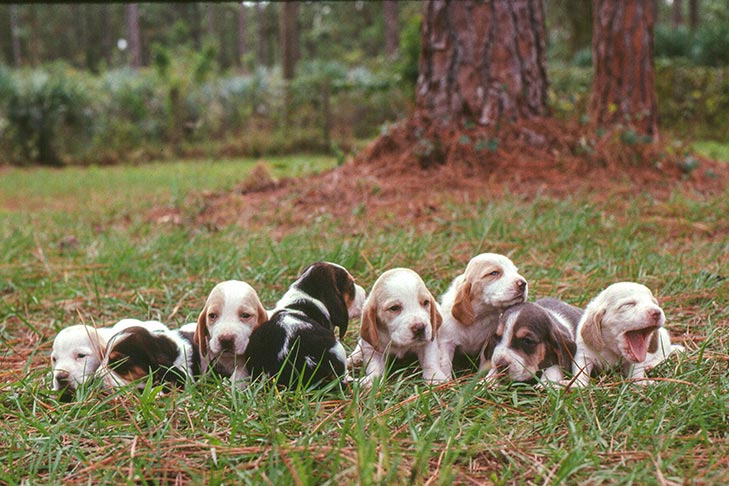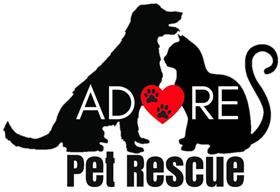Setting Puppies Up for Success In New Homes
Many first-time puppy owners feel overwhelmed in the early weeks of bringing home their new addition. As a responsible breeder, there is much that can be done to alleviate some of the more common issues owners have with new puppies before you send your precious litters out to their new homes.
Addressing common problems before they begin can set your puppies up for success in their new homes. By working with puppies early, you can take advantage of their early socialization periods and developing brains to build confident resilient young dogs. Early training can improve the chances of an easy transition into a new home for both the puppy and your client.
Environment
An enriched environment creates an enriched brain. Exposure to novelty before a puppy’s first fear period (8-9 weeks of age) helps them to build resiliency to things they may experience later.
- Provide a variety of toys, including ones that move, light up, or make sounds.
- Provide different surface textures to play on, such as artificial turf, metal, rubber mats, mulch, etc.
- Offer wobble boards, balance pillows, and other moving obstacles to develop body awareness.
- Rotate toys and obstacles often.
- Introduce recorded sounds such as traffic, thunderstorms, fireworks, and barking. Doing this at feeding time can help build a positive association with noises that commonly worry dogs.
Housetraining
Housetraining should be the first thing on a new puppy owner’s to-do list. While puppies are still young, they can begin to learn preferences for where to eliminate. Encouraging puppies to eliminate in a litterbox and outdoors early can go a long way to helping owners have quick potty-training success.
- Provide puppies with a separate elimination area by 3-4 weeks of age. It’s good for the substrate in this area to be tactilely different from the rest of their pen.
- Feed puppies on a schedule. Once weaned, feeding puppies on a schedule helps to regulate their developing GI tract. Always follow your veterinarian’s advice on how often to feed puppies.
- What goes in on a schedule, goes out on a schedule. Predictability of bowel movements will help owners with making their potty-training schedule at home.

Crate Training
Crate training is another skill that puppy owners often struggle with. Being suddenly separated from their dam and littermates can be very distressing for young puppies. Familiarizing puppies with crates early will help them be more comfortable when they are brought to a place full of strange people and smells.
- Start with an open crate in the litter’s playpen or kennel and put treats and toys inside it.
- Feed puppies separately in open crates.
- Put sleepy puppies in crates so they are more likely to settle and rest inside.
- Crate puppies for short periods of time and let them out before they begin to stress.
- Allowing puppies to “cry it out” can create negative associations with being crated.
Handling and Grooming
Everyone knows puppies should be handled to make them comfortable with human touch. We can go even further by teaching puppies to enjoy handling and grooming. This is important for all breeds, not just coated ones. Puppies that are relaxed for husbandry procedures like nail trims, teeth brushing, ear cleaning, and brushing will make it easier for owners to care for them at home.
- Do grooming in short sessions to not overwhelm or flood a young puppy.
- Pair grooming and handling with food treats to make it a positive experience.
- Rather than expecting the puppy to “get used to it,” teach them to look forward to grooming.
- Have puppy playtimes in the bathtub, grooming tubs, and on grooming tables. Likewise, give lots of treats so the puppies learn these areas are fun.
Resource Guarding Prevention
Puppies can learn early on to happily give up resources like food and toys. Learning to give up high–value items can prevent puppies from developing resource guarding down the road. Sharing food bowls with littermates can create anxiety around food and lead to resource guarding in the future. Intensity around food items and toys can lead to ingestion of foreign objects, conflicts between a puppy and other pets in the home, or the owners.
- Teach trades. Use treats and other toys to trade puppies for their toys.
- Feed littermates in separate bowls to reduce competition over food.
- Teach them to associate people coming near their food by dropping treats as you walk past.
- Never forcefully remove food or toys from a puppy’s mouth.
- Teach a “Leave It” cue that owners can use as a potentially life-saving tool.
Early Socialization
Entire books have been written on how to successfully socialize puppies. Good early socialization is perhaps the most important thing breeders can do before sending puppies home. In this category, quality is better than quantity. Puppies should be learning that the world is safe and fun, not scary.
Make early socialization experiences fun with treats and play. Don’t force unwilling puppies into situations of which they are unsure. Give each puppy in the litter individual attention, separate from their littermates, for short periods of time. Confident puppies who are comfortable in various environments have the most success with their new owners. Exposure to other elements like car rides, strangers, other dogs, and new locations can also help develop early socialization skills.
Reliable Recall
One of the most lifesaving skills we can teach dogs is to come when called. Instilling a strong recall cue on a dog can protect them should they ever accidentally get loose. Since puppies can learn a strong recall cue at a young age, this early learning often stays with them for years.
- Associate a cue with feeding time. Call the litter before you put down their meals.
- High–pitched repetitive vocal sounds make good cues e.g. “Pup, Pup, Pup!”
- Always follow the cue with a positive reward such as food, treats, or play.
- Don’t call the puppies for things that may be unpleasant, such as baths.

Focused Training
Puppies can begin learning more focused skills as early as five weeks. Dogs destined for the show ring can begin learning to stack. Puppies can easily learn to sit politely when they want food or play. Puppies should be introduced to collars and leash walking early on as well. Sending puppies home with some basic skills will set their owners up for success for future training.
- Introduce training in short sessions.
- Use food treats to make positive associations with learning.
- Teach basic skills such as sit, stay, come, and loose leash walking.
Successful Puppies Equal Successful Homes
The more early socialization and training puppies have in their breeders’ homes, the more success they will have in their new owners’ homes. Of course, new owners often have the same difficulties with puppies. Housetraining, crate training, and early basic training takes some of the early stress out of the process.
Owners will gloat far and wide about how easy it was to train their puppy based on how well trained they were when they came home. Early socialization and training not only makes for more confident and resilient dogs, but happier clients who will continue to refer to your breeding program. Setting owners and puppies up for a lifetime of success starts in the early weeks of a puppy’s life and will reflect on a breeders program for many years.





Hi, this is a comment.
To get started with moderating, editing, and deleting comments, please visit the Comments screen in the dashboard.
Commenter avatars come from Gravatar.